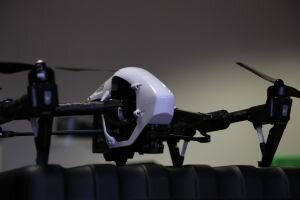The United Nations World Food Programme and the government of Belgium are launching an initiative to explore the use of unmanned aerial vehicles (UAVs) in humanitarian emergencies.
Today, WFP and Belgium led a workshop that brought together experts from the humanitarian, academic, government and private sectors.
“When disaster strikes, WFP and its humanitarian partners must respond as quickly and efficiently as possible,” says Ertharin Cousin, executive director of WFP. “At WFP, we are always looking to pioneer new practices and technologies so we can overcome the challenges we face in the midst of chaos – and ultimately save lives. Strong partnerships in technology and innovation can foster better, faster and more coordinated responses.”
Thanks to a EUR 500,000 contribution from the Belgian Development Cooperation, WFP is leading a one-year pilot project to develop the coordinated use of UAVs for disaster response.
“In less than a decade, the cost of responding to humanitarian crises worldwide has increased from EUR 3 billion to more than EUR 20 billion,” states Alexander De Croo, Belgian deputy prime minister and minister of development cooperation.
“Only one percent of the humanitarian sector’s turnover currently goes to innovative solutions. We need to step up these efforts,” he adds. “That is why Belgium actively supports partners such as the WFP to foster innovation and explore new responses to humanitarian crises.”
The Belgian-funded WFP initiative aims to design solutions for the effective use of drones for the broader humanitarian community, as well as address potential safety and data-protection risks. As part of this effort, four workshops and a simulation exercise will take place in disaster-prone countries this year.


 Categories :
Categories : 
